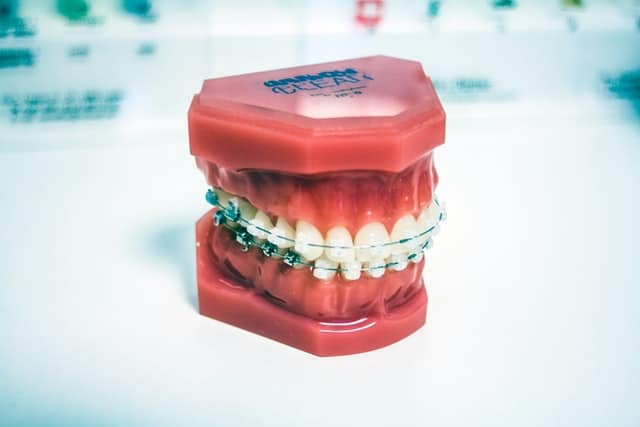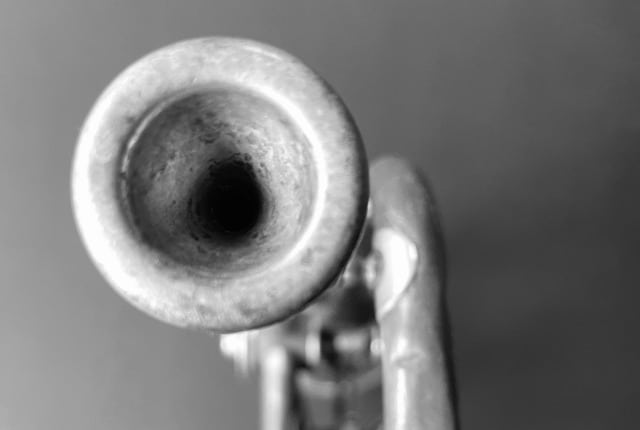The love for the trumpet has many enemies, and today we’re going to talk about a very specific one: Braces. Sadly, due to the nature of braces and everything they entail, this is mainly a problem that affects either kids or young people. Let’s see the problem of playing the trumpet with braces – and what to keep in mind.
What’s the problem with braces?
For one, braces effectively disable trumpet players from tooting out high tones – but besides seriously hampering a trumpeter’s musical performance, braces can also cause lip damage, bleeding, and teeth fatigue or bruising.
Why is this perhaps the greatest problem that young trumpet players can ever face? Because young people are fragile, still developing, and having the iron curtain of braces standing between them and their love for the trumpet, many give up and turn back. Not to mention their self-confidence can get pretty badly bruised. Giving up on your dreams just because of a thin wire in your mouth seems like a pretty cruel thing to endure, regardless of age.
Looking for a teacher?
Want to get lessons at the comfort of your own home? Check out the course Learn to Play the Trumpet: Beginner to Pro Made the Easy Way* on Udemy! (See their full trumpet course line-up here*!)
Before Braces
Prevention, a wonderful word. In the dictionary, it is listed as “the action of stopping something from happening or arising.” Prevention is key in avoiding many of the problems that trumpet enthusiasts will face down the line by wearing braces.
This, of course, means that both parents and young people need to be very careful about choosing their orthodontist, and the type of braces they’ll recommend to be applied. A general rule of thumb in choosing your orthodontist is this: if they downplay or underestimate the fact that your kid will be playing the trumpet for hours every single day, it is best to visit a different orthodontist.
Mostly, orthodontists who have experience with trumpet players will not underestimate this circumstance, and will either try to reassure you you’ll be fine with the trumpet, or offer types of braces that will be more comfortable for the active trumpet player.
If possible, always go for the braces that have the smoothest edges and less wiring, or as an alternative (and if applicable) ask your orthodontist about the Crozat removable appliance. This is a sort of inverted-braces appliance, and is much more comfortable and less intrusive to wear in your mouth. Plus, it eliminates all problems when playing the trumpet, since it’s not between your front teeth and your lips.

During Braces
First and foremost, the psychological impact will be the greatest. If you’re a trumpet player with a well developed embouchure, and have thus far performed very well – that will go away because of the braces. They introduce a change to your mouth structure that can’t be ignored, and be advised, it’s not easy to adjust to, physically or mentally.
Your performance can suffer greatly, which can get you demoted from first trumpet and so on, and if you find it too troublesome, you can even want to leave the band. If you are a beginner trumpeter wearing braces, it’s just as well – with perhaps having a lot less to lose. So, be aware of the impact that wearing braces can have on your mood and motivation. Here’s a few tips to help you out with this, make sure you always remind yourself of these:
It will pass.
Don’t forget this is merely temporary. Whether you have to wear the braces for months or years, time goes by, and by the time you take them off it will all seem like it happened in the blink of an eye.
Keep reminding yourself of this, but also consider that a good trumpeter needs a lot of skills that are not directly related to blowing the horn. Work on your rhythm, work on your posture, work on music theory, and listen to your idols.
You can improve and adjust your technique.
The main problem with having braces on when you’re playing the trumpet is that you can’t blow too hard to get all the necessary tones. Working religiously on adjusting your technique towards reducing the pressure can be just as effective as having a really good mouth guard.
So, review your playing habits, endure the first couple of weeks (those are the hardest) and you’ll be getting your sound, confidence and joy back before you know it.
A little adjustment can go a long way. Besides, learning to play without pressure is immensely helpful in the long run, because you’ll be richer by one technique.
Don’t stress.
(Self-explanatory.) But really, you could use some extra relaxation in your life if you’re a trumpeter with braces. Meditation, jogging, sports, drawing or playing games, everything is a good idea if it gets you more relaxed.
That being said, the cause of all these psychological challenges are definitely the physical obstacles (in your mouth, no less). Once you have those braces on, there is still a lot you can do to make it much more comfortable for you.
How to play the trumpet with braces… comfortably!
Using Dental Wax
You can try applying dental wax* as a lip protector to the braces before playing – this is one of the most commonly used workarounds.
The wax serves as a soft buffer between the braces and your lips, which lessens the risk of injury. An alternative to this can be the folding of cigarette paper several times and inserting it under your lips.
Using A Mouthpiece For Braces
Other solutions involve getting a mouthpiece especially developed for playing with braces. You can get a BP mouthpiece here. Some people find playing more comfortable with this, for others, dental wax is already a relief.
Use a Morgan Bumper or Denture Cushions
Speaking of products, you can also try protecting your lips from your braces by applying denture cushions*, a Braceguard, or a Morgan Bumper* across the braces. All of these mouth guards are designed to make braces feel softer and more comfortable in your mouth, so you don’t shred your lips when you’re playing.
Just visit your local drug store and ask for lip protectors, and you’re all set. Of course, the choice is yours, but whatever you do make sure to help yourself.
After Braces
Well, cheers! You made it! Time to celebrate. Actually… not. While finally getting rid of the Terminator in your mouth is obviously a cause for celebration, keep in mind that your technique has changed, and that going back to playing the trumpet with your mouth, now free, will take some getting used to. It can feel awkward, and you’ll be missing tones again.
However, this will only take a month or two, after which you’ll be able to play the trumpet to your heart’s content, but this time with the benefit of wearing a beaming smile!
Related Articles
- What You Should Know Before Taking Trumpet Lessons
- 11 Famous Songs with Great Trumpet Parts
- What Are the Different Types of Trumpets?
- A Beginner’s Guide: Your First Trumpet Lesson
- The 5 Best Online Resources and Lessons for Beginner Trumpet Players
- Top 3 Trumpet Maintenance Tips
TrumpetHub.com is a participant of the Amazon Services LLC Associates Program, an affiliate advertising program. Links marked with an asterisk (*) are affiliate links. If you buy a product through an affiliate link, we will get a small commission without extra cost to you. This helps us earn an income off the free content we provide to you. Thank you for your support!
Photo of braces by Quang Tri NGUYEN on Unsplash


